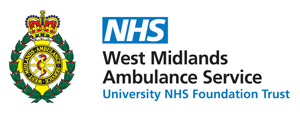NIHR Birmingham Biomedical Research Centre
Diseases of the immune system which lead to persistent inflammation such as colitis, Crohn’s disease and arthritis, are a group of common and highly disabling conditions which share underlying disease processes. They affect up to 10% of the UK population and this figure is likely to increase with our ageing population. Unfortunately, treatment is expensive, rarely curative and often associated with disabling side-effects such as infection.
The NIHR Birmingham Biomedical Research Centre has exploited the outstanding clinical environment of the University Hospitals Birmingham NHS Foundation Trust and the longstanding research at the University of Birmingham to shed light on the common and distinct mechanisms underpinning these diseases.
NIHR Trauma MIC
The NIHR Medtech and In vitro diagnostics Co-operatives (MICs) launched on 1st January 2018. The NIHR MICs replace the NIHR Healthcare Technology Co-operatives (HTCs) and NIHR Diagnostic Evidence Co-operatives (DECs), incorporating and retaining the remits of both.
The NIHR Trauma Management MedTech Co-operative will build expertise and capacity in the NHS to support the development of new medical technologies in order to enable improved management of the trauma care pathway from the point of injury through to stabilisation and recovery.
West Midlands Ambulance Service
The West Midlands Ambulance Service NHS Foundation Trust serves a population of 5.6 million people, covering an area of more than 5,000 square miles made up of Shropshire, Herefordshire, Worcestershire, Staffordshire, Warwickshire, Coventry, Birmingham and Black Country conurbation. As the region’s emergency ambulance service, we respond to around 4,000 ‘999’ calls each day. To manage that level of demand, we employ approximately 5,000 staff and operate from 15 new fleet preparation hubs across the region.
As an organisation, we were formed in 2006 bringing four previous services together. In January 2013, we were authorised as a Foundation Trust and in line with the provisions of the Health and Social Care Act 2012, was licensed as a provider of NHS Services on 1 April 2013.
Centre for Conflict Wound Research
The Scar Free Foundation Centre for Conflict Wound Research at Queen Elizabeth Hospital Birmingham (QEHB), is a partnership with the University of Birmingham (UoB), the Centre for Appearance Research (CAR, University of the West of England), and the CASEVAC injured veterans club.
The principal aim of the Centre is to reduce and eventually eradicate the impact of scarring and related loss of function amongst Armed Forces personnel who sustain critical injuries during their deployment, as well as civilians injured in conflict or terrorism incidents. It will achieve this by supporting a nationally relevant programme of biological and clinical research under three strategic themes: (1) Acute wound care and diagnosis and diagnosis; (2) The biology of scarring biology; (3) Life-long scar impact, revision, and rehabilitation.
The advances our Centre’s research makes around wound/scar treatment and rehabilitation will not only benefit serving and former Armed Forces personnel. Improvements made will contribute to improving civilian and humanitarian healthcare, nationally and globally.
Centre for Trauma Science Research, University of Birmingham
The multidisciplinary Centre for Trauma Sciences Research (CTSR) provides a focal point that links preclinical and clinical researchers working across the University of Birmingham campus on wide-ranging translational trauma science projects. It has three core objectives:
- To generate a pipeline of novel preclinical research projects and move them rapidly along the translational pathway from conception towards clinical adoption;
- To act as the hub of a national network of trauma science research laboratories, being the ‘go to’ Centre for near-patient testing, consultancy, information and access to key academic, commercial, regulatory and clinical partnerships;
- To build significant research capacity by training a substantive cohort of early-career trauma research scientists (clinical and non-clinical) who will drive future trauma research to address the acknowledged research capacity deficit in trauma in the UK.
The CTSR interfaces closely with the NIHR Surgical Reconstruction and Microbiology Research Centre, the Physical Sciences for Health Centre, the Healthcare Technologies Institute, the NIHR Trauma MedTech, the Scar Free Foundation Centre for Conflict Wound Research and the pharmaceutical and biotech industry in order to deliver a step-change in technology development and clinical treatment of trauma.







